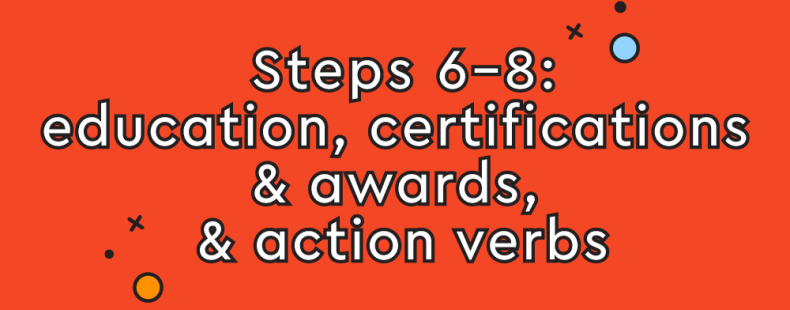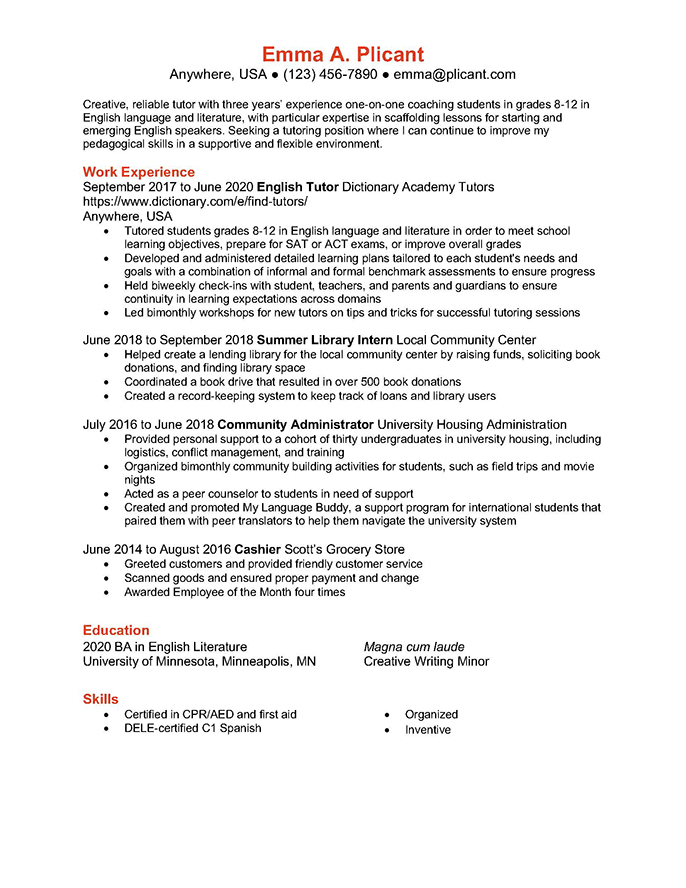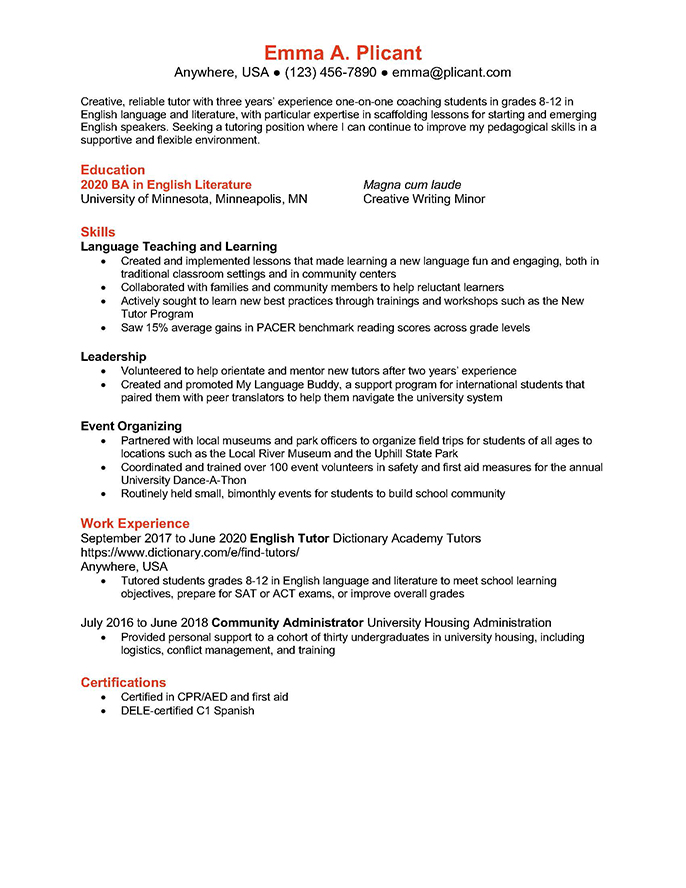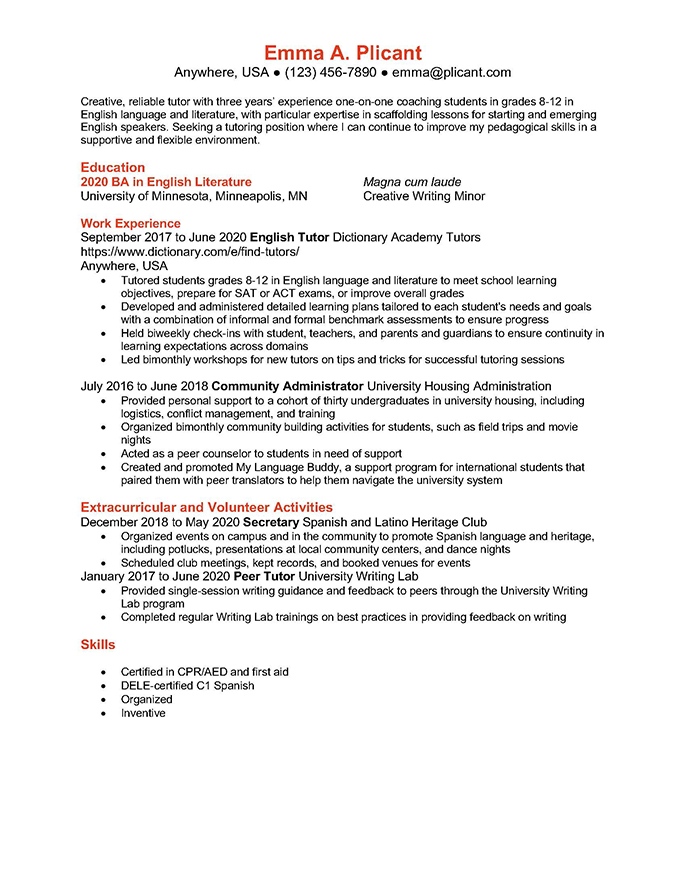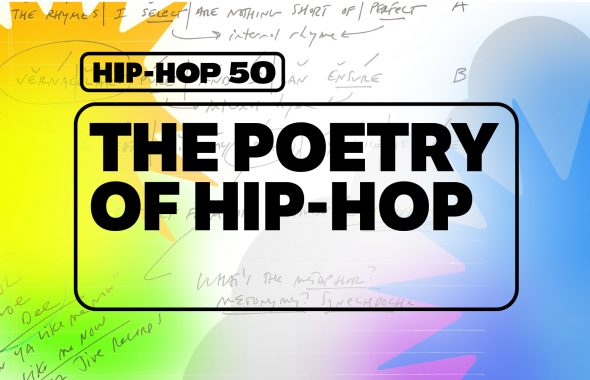Your career has been exciting thus far—and you’re ready to make sure others know how impressive it is. Are you skilled at using action verbs and buzzwords to describe your accomplishments?
This article covers steps 6 and 7 (out of 10 steps) of how to write a strong resume. Every resume is slightly different depending on the field and personal experience, but there are some general guidelines that everyone should keep in mind when writing a resume. This article will coach you on using effective verbs to highlight your skills and also formatting your education and awards.
Step 1. Choose a Resume Format
Step 2. Include Appropriate Contact Information
Step 3. Write a Stellar Objective
Step 4. Highlight Relevant Experience
Step 5. Add Relevant Skills to Your Resume
✅ Step 6. Include an Education Section
✅ Step 7. List Certifications and Awards
✅ Step 8. Incorporate Action Verbs, Adjectives, and Other Buzzwords
Step 9. Edit Your Resume
Step 10. Share Your Resume
We’ve provided three sample resumes you can use to follow along in this series and create your own format. There are three templates linked here (click on the images below to expand them), but each format is explained in more detail in step 1 of this series.
- the chronological resume
- the functional resume
- the combination resume
Step 6. Include an education section
You should include a brief description of your educational achievements and any notable awards you earned as a student. You do not need to include your entire educational background. In most instances, you need only include your highest degree. If you are applying for a job with a master’s or a PhD, you will likely include all of your degrees in higher education.
Your education section should include:
- Year of graduation
- Type of degree (eg. BA, MA, etc.)
- Educational institution
- Majors/minors
- Honors or major awards (eg. cum laude, honors, Dean’s List, etc.)
This can be a relatively short section of your resume. Please note, if you’re a recent graduate, you can include your graduation year, while more experienced professionals can leave out that detail.
For example:
2020 BA in English Literature
University of Minnesota, Minneapolis, MN
Magna cum laude
Creative Writing Minor
2018 University Poet Laureate
Step 7. List certifications and awards
This part of the resume is optional and may not apply to you. In some fields, it is normal to receive a number of different certifications. For example, teachers may work to get additional certifications to teach a new content area or meet a specific need. As far as awards go, they do not necessarily need to be directly job-related if they demonstrate some soft skills. For example, it might be worthwhile to include a scouting award, because it shows leadership. If you don’t have any notable awards, don’t include them.
Hobbies and interests
You’re a real person. You’ve got hopes, dreams, and … (maybe) hobbies or interests. While listing these things on your resume is optional, it’s a chance to let your potential employer get to know you a little better. Keep your list of hobbies or interests short, about three max, and don’t describe too much. Stick to a couple words.
Like this:
- bird-watching
- stand-up comedy
- running marathons
Step 8. Incorporate action verbs, adjectives, and other buzzwords
In order to make your resume pop, you will want to avoid repeating language too frequently. That’s where we can help. You will want to use a variety of action verbs, adjectives, and buzzwords that are specific to your experience and the job posting itself.
Action verbs
There are three basic kinds of verbs: action, linking, and stative. We are going to focus on action verbs, or words that describe all of the things you physically do. Sing, write, act—these are all action verbs. When it comes to writing your resume, you want to try to use action verbs as much as possible because it helps your job descriptions be specific. It’s better than using the verbs to be or to do over and over again. Some good action verbs to use in your resume summary or work history are:
Click each verb for more synonyms. Also be sure to read our article about action verbs for resumes.
Adjectives
Adjectives are words that describe nouns. Short, long, blue, smelly—all examples of adjectives. When it comes to your resume, you will want to use highly descriptive adjectives like:
Less exciting, more ho-hum adjectives like smart, complicated, or interesting should be avoided. They risk getting repetitive. Thesaurus.com is a good resource for finding strong synonyms for everyday adjectives.
Upgrade your resume after you read our article about the best adjectives to include.
Buzzwords
A buzzword is a word or phrase, often sounding authoritative or technical, that is a vogue term in a particular profession or field of study. You want to use buzzwords carefully—too many and it can come off as disingenuous. However, you do want to use a few to demonstrate your knowledge of the field.
To get a sense of the appropriate buzzwords for the position, read the job posting and employer website carefully. Take note of language that they repeat or use to describe the job. For example, if the job posting states that they value “creative problem-solvers,” you may want to use that language in your resume. Aim to use a handful of buzzwords on your resume, but do not feel the need to work them in where they are not useful or descriptive.
While the right buzzwords can demonstrate your knowledge of the field, overusing generic buzzwords can do the opposite. According to a 2017 study from LinkedIn, some of the most overused buzzwords are:
- specialize
- experienced
- skilled
- passionate
- motivated
- strategic
- focused
Be careful about overusing these terms! Let Thesaurus.com be your authoritative source on overused words and better alternatives.
Ready for the next step? Review the last steps on editing and sharing your resume.
